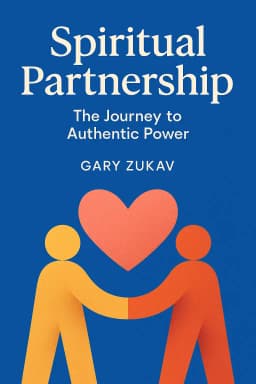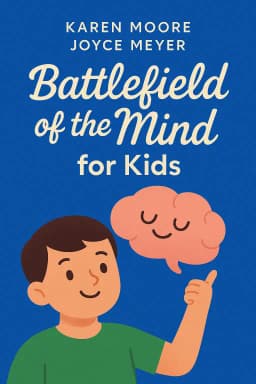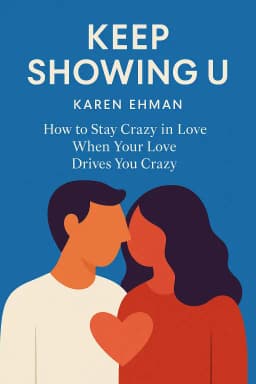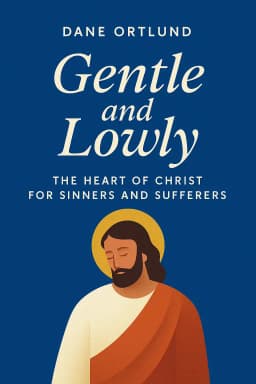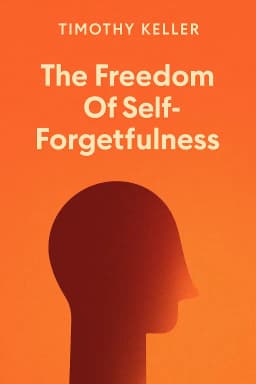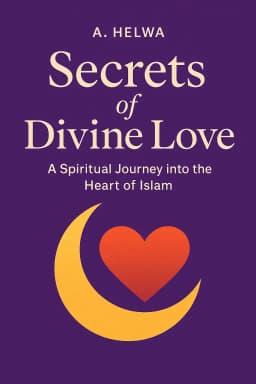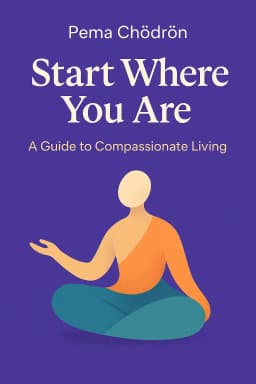
Your 84th Problem
Golden Hook & Introduction
SECTION
Daniel: Most people think Buddhism is about finding peace and eliminating problems. But what if the first step is accepting you have exactly 83 problems, and the real issue is the 84th: your desperate wish to not have any? Sophia: Whoa, hold on. Eighty-three problems? That sounds incredibly specific and, honestly, a little stressful. I thought the goal was to get my problem count down to zero, not to be told I have a fixed number I can't do anything about. That feels like the opposite of peace. Daniel: It feels like it, but that's the radical premise at the heart of Buddhism Plain and Simple by Steve Hagen. And it’s one of the clearest, most direct books on the topic you’ll ever find. Sophia: Okay, I’m intrigued. Who is Steve Hagen? Is he some ancient monk on a mountaintop? Daniel: Not at all, and that’s what makes this book so powerful. Hagen is an American Zen priest who received Dharma transmission, which is essentially the highest authorization to teach. His whole mission with this book was to strip away all the cultural baggage, the rituals, the statues, and give Westerners the absolute core of the practice: awareness. Sophia: So, no jargon, no chanting, just the raw mechanics of the mind. That’s probably why it’s so highly rated and considered a classic for beginners. It cuts through the noise. Daniel: It cuts right to the bone. And it starts with this idea that we’re all fundamentally misunderstanding our own dissatisfaction.
The Perennial Problem: We're Starving at a Banquet
SECTION
Sophia: Alright, so if the goal isn't to get rid of our 83 problems, what is this "perennial problem" the book is trying to solve? Daniel: Hagen uses this incredible metaphor. He says the human situation is like being at a sumptuous banquet. The tables are piled high with the most delicious food imaginable—steaming, glistening, sizzling right in front of you, easily within reach. Sophia: Sounds pretty good so far. Where's the problem? Daniel: The problem is, everyone at the banquet is starving to death. Sophia: What? Why? Daniel: Because they don't realize they're hungry. They feel the pains in their stomach, the weakness, the gnawing emptiness, but they don't connect it to the food. They don't recognize that the solution to their suffering is right there. The book argues that this is our default state. We live in a world of abundance, with the capacity for joy and peace, but we're consumed by a low-grade, constant dissatisfaction—what Buddhism calls duhkha. Sophia: I like that. ‘Dissatisfaction’ feels more accurate than ‘suffering.’ Suffering sounds so dramatic, like a tragedy. But dissatisfaction… that’s the feeling of scrolling through your phone at 11 PM, knowing you should be asleep but looking for… something. It’s that sense that your life is a wheel that's just slightly out of kilter. It still rolls, but the ride is always bumpy. Daniel: Exactly. It's not a flat tire; it's just… off. And this brings us back to that farmer with his 83 problems. A farmer comes to the Buddha and lists all his troubles: the rain is ruining his crops, his wife nags him, his kids are disrespectful. He wants the Buddha to fix it all. Sophia: A very relatable request. So what does the Buddha say? Daniel: He listens patiently and then says, "I can't help you with those. Everybody's got eighty-three problems. In fact, that's just how life is. There's nothing you can do about it." Sophia: Okay, I’d be furious. That sounds completely useless. I can see why some critics might argue this approach feels a bit passive or detached from real-world issues. Daniel: The farmer was furious! He yelled, "Then what good are your teachings?" And the Buddha calmly replied, "Well, my teaching might be able to help you with the eighty-fourth problem." The farmer, confused, asks, "The eighty-fourth problem? What's that?" And the Buddha says, "You want to not have any problems." Sophia: Ah. There it is. The real suffering isn't the rain or the nagging. It's the resistance to the fact that life has rain and nagging. It’s the story we tell ourselves that life should be smooth. Daniel: That’s the core of it. The banquet is right here, but we're so busy complaining about the menu that we forget to eat. We think happiness is the absence of problems, but the book argues that's the very belief that keeps us starving. Sophia: That is a profound reframing. It shifts the source of the problem from "out there" to "in here." Which I guess leads to the next logical question: if our desire to fix things is the problem, what's causing that desire?
The Source of the Sickness: It's Not Desire, It's the 'Picking and Choosing'
SECTION
Daniel: Exactly. And that desire to have no problems points directly to the second big idea: the real source of our suffering isn't what happens to us, but how we relentlessly label it. The book says, "Picking and choosing is the mind's worst disease." Sophia: What does that mean, "picking and choosing"? Daniel: It’s our automatic, non-stop habit of judging everything. This is good, this is bad. I want this, I hate that. This is a success, this is a failure. We think these judgments are helping us navigate the world, but they're actually the bars of our prison. Sophia: Because we can't possibly know the true nature of an event when it’s happening. Daniel: Precisely. And the book tells the perfect story to illustrate this: the wise Chinese farmer. You know this one? Sophia: I think so, but refresh my memory. Daniel: A wise old farmer has a horse, and one day it runs away. His neighbor comes over and says, "Oh, what terrible luck!" The farmer just shrugs and says, "Who knows what's good or bad?" A week later, the horse returns, and it brings a whole herd of wild horses with it. The neighbor rushes over, "What incredible fortune!" The farmer just says, "Who knows what's good or bad?" Sophia: I see where this is going. Daniel: The next day, the farmer's son tries to tame one of the wild horses, gets thrown off, and breaks his leg. The neighbor comes by, "Oh, what a tragedy!" The farmer, again: "Who knows what's good or bad?" A few days later, the army comes through the village, conscripting all the able-bodied young men for a war they’ll likely never return from. But they see the farmer's son with his broken leg, and they pass him by. Sophia: Wow. Every "bad" event led to a "good" outcome, and every "good" event led to a "bad" one. It’s like that modern saying, "You can't connect the dots looking forward; you can only connect them looking backwards." We are constantly making these huge, definitive judgments with almost zero information. Daniel: We are. We get a promotion and think, "This is great!" and then we're miserable from the stress. We get rejected for a job and think, "This is awful!" and then a much better opportunity comes along a week later. The farmer isn't being passive; he's demonstrating a profound wisdom. He's refusing to apply a simplistic, frozen label onto a fluid, unpredictable reality. Sophia: But that's so hard to do! Our brains are wired for judgment. It’s a survival mechanism, right? To quickly assess threats and opportunities. How do you just… stop? Daniel: The book argues the point isn't to kill desire or stop thinking. The point is to see. To see your mind in the act of picking and choosing. To notice the leaning. When you see yourself labeling something as "terrible," you can add a little mental asterisk: "...as far as I can tell right now." It’s about holding our own conclusions more lightly. Sophia: It’s about creating a little space between an event and our reaction to it. It’s not about changing the event, but changing the certainty of our response. Daniel: You've got it. And once you start seeing that, you realize that most of your emotional turmoil comes from your rigid labels, not from the events themselves. The raccoon that slashes your car roof to get some cookies isn't "evil." It's just a raccoon being a raccoon. Our suffering comes from the story we tell about it—"Some terrible person vandalized my car!" Sophia: Okay, so if we're starving at a banquet because we're too busy labeling the food as good or bad, how do we finally learn to just see the food for what it is and eat? What's the practical way out of this mental prison?
The Way Out: Seeing, Not Believing
SECTION
Daniel: The way out, according to Hagen, is through "seeing," not "believing." This is where he really challenges the Western idea of morality and religion. He argues that the Buddhist precepts aren't a set of rigid rules to be followed blindly, like the Ten Commandments. They are guidelines for being awake. Sophia: I love that distinction. It treats you like an intelligent, aware adult, not a child who just needs to follow a list. Daniel: Exactly. And he uses a very powerful, very stark example to make his point. Imagine it’s World War II, and you are hiding a Jewish family in your attic. The Gestapo pounds on your door and asks, "Are you hiding anyone?" Sophia: Right. The rule "Thou shalt not lie" is suddenly not so simple. Daniel: In fact, following that rule would be a monstrous act. The truly moral, the "right action" in that moment, is to lie. It’s to see the entire situation—the lives at stake, the injustice, the compassion—and act from that whole picture, not from a pre-packaged, absolute rule. Sophia: So "Right Action" isn't about being "correct," it's about being "appropriate" to the full reality of the moment. That’s a much higher bar, but it also feels much more human. Daniel: It is. It requires you to be present, to be aware, to see. And this is why the book is so popular with people who are skeptical of organized religion. It’s not asking for faith in a doctrine; it's asking you to trust your own direct perception of reality. Sophia: It’s a manual for seeing, not a book of beliefs. Daniel: That's the perfect way to put it. And Hagen uses another great analogy for this. He says the teachings of Buddhism are like a raft. You use the raft to get across a dangerous river. But once you get to the other shore, what do you do? Sophia: You leave the raft behind. You don't strap it to your back and carry it around for the rest of your life. That would be absurd. Daniel: It would be a burden! The teachings, the concepts, even the word "Buddhism" itself—they are all tools. They are the raft. They are incredibly useful for crossing the river of confusion. But the goal is to get to the other shore of direct experience. Once you're there, you don't need the raft anymore. You can just live. Sophia: You can just eat at the banquet. Daniel: You can just eat at the banquet.
Synthesis & Takeaways
SECTION
Sophia: So, when we put it all together, this book isn't really about Buddhism as a religion at all, is it? It’s not about becoming a "Buddhist." Daniel: Exactly. It's a manual for perception. If there's one ultimate takeaway from Buddhism Plain and Simple, it's that freedom isn't something you achieve, earn, or get from a teacher. It's your default state. It’s what’s left when you stop layering your own stories, your judgments, and your desperate need for certainty on top of reality. Sophia: The freedom is already there, underneath all the noise we create. We don't need to add anything; we need to stop adding things. Daniel: That's the whole practice in a nutshell. The book's final message, the Buddha's own last words, were, "Be a light unto yourself." Don't look for refuge in a book or a guru. The only authority on your own mind is you. Sophia: That’s both incredibly empowering and a little terrifying. It puts all the responsibility back on us. Daniel: It does. So maybe the question for all of us listening is, what one "story" or "judgment" could you try to let go of today? Just for an hour. The story that your boss is out to get you, or that this traffic jam is a disaster, or that you're "bad" at something. What does reality look like without that one label? Sophia: That's a great, practical challenge. And we'd love to hear your thoughts. Find us on our social channels and share one "label" you're trying to drop. It’s a fascinating experiment to run on your own mind. Let's see what we can learn from each other. Daniel: This is Aibrary, signing off.
